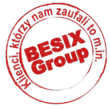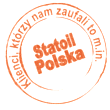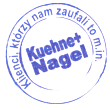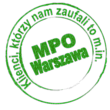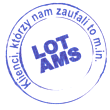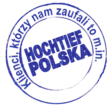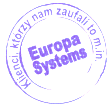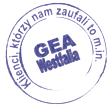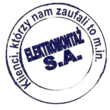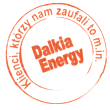About us - basic information
The ERGON Personnel Improvement Centre has been successively undertaking vocational training of new trainees for years, especially in the field of electrical authorisations (up to 1kV) and the UDT branch. We have thousands of courses and satisfied customers behind us. We are a reliable, flexible establishment. Our staff always tries to meet the needs of the trainees, while creating a space that is friendly and comfortable in terms of acquiring new knowledge.
The most popular courses with us are:
- mobile platforms;
- HDS cranes;
- cranes;
- telescopic handlers;
- forklift trucks.
The classes we organise make it possible to obtain UDT qualifications for maintenance and handling equipment (UTB) operators.
Course of training
Many years of training experience have contributed to our development of a suitable teaching plan. The course programme is divided into two parts: theoretical (lecture) and practical (mechanical skills). Those interested in the course have the option of enrolling on an individual or group basis. The instructor will provide participants with knowledge of the general construction and operation of welding equipment, in addition to introducing them to basic health and safety rules and preparing them for starting work. Comprehensive training by our staff of specialists will enable the trainees to prepare for the UDT exam and ensure that they pass it.
Requirements for those interested
In order to take part in any course organised by our centre, it is necessary to meet a few basic conditions. These requirements are imposed top-down by the Office of Technical Inspection.
The trainee must:
- be over 18 years of age;
- have a document certifying at least primary or vocational education;
- have a certificate from a doctor of occupational medicine indicating that there are no contraindications to exercising the profession.
What do you gain?
- UDT authorisations recognised throughout Poland and abroad;
- the possibility of finding a well-paid job in a short period of time.
Final examination
Once the course has been completed, the participant takes the UDT examination, the successful passing of which is tantamount to obtaining a licence. The centre mediates the enrolment of participants for the examination and also provides support during arrangements with the examiners.
Thanks to our cooperation with the Office of Technical Inspection, as well as other industry bodies, our trainees receive professional and comprehensive preparation every time, so passing the licence examinations after our course is usually just a formality.
Where can you find us?
Warsaw is the main location within which we operate, but we also happen to provide training in local centres. We are flexible and open to organising closed courses. Such lectures are primarily intended for groups of employees or large numbers of interested parties. In the case of such classes, the details of the cost estimate are, of course, agreed individually and adapted to the needs of the client.
Welding and welding specificity - knowledge base
Welding
Welding is one of the basic technologies that is used to achieve permanent connections between components (especially structures and parts of equipment made of metal or plastic). During this process, the surfaces of the parts coming into contact with each other are heated in such a way that they can become doughy and then pressed together to form a permanent joint. One of the most common welding methods is resistance welding (electrical resistance welding). However, in order to weld correctly and professionally, it is necessary to be qualified.
Welding
Welding is a method focused on the local melting and solidification of materials, during which an additional welding filler is used. During processing, this filler material melts with the parent material and fills the weld. The aspect of welded joints mainly concerns the joining of metals (primarily steel), but also plastics. Currently, the most common welding methods are gas welding and electric welding (using a welding machine). Appropriate qualifications are required to work in the welding industry.
Anyone interested is welcome to contact us for enrolment!
Other ERGON courses
Other courses on offer include:
- training on fire regulations;
- training for newly recruited staff;
- training for manual workers;
- training for engineering and technical staff;
- training for employees carrying out hazardous work;
- training for administrative and clerical staff;
- training for employers and persons in charge of employees;
- periodic training for the occupational health and safety service;
- first aid training;
- training for employees on fire prevention at work;
- sling inspection training;
- mountaineering course;
- flange connection training;
- forklift truck training.
Questions and answers
What are the requirements to join the course?
To join the training course, the prospective trainee must: be of legal age, have a document certifying at least basic or vocational education and have a certificate from an occupational physician that there are no contraindications to the job.
Is an exam organised at the end of the training?
At the end of the course, the participant takes an internal assessment, the successful passing of which enables the participant to take an external examination. Passing this examination is equivalent to the award of a certificate.


















